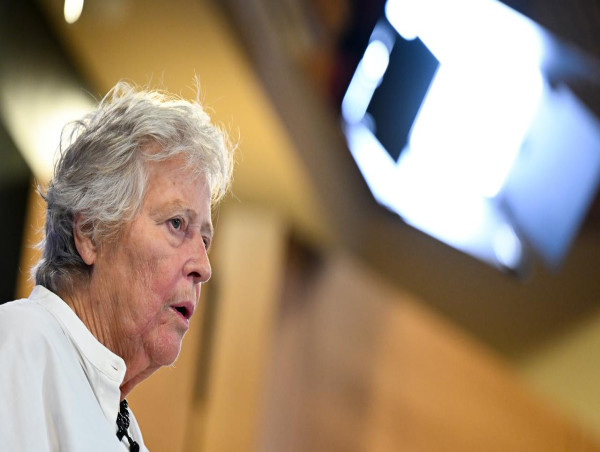Australia will miss out on investment and fail on emissions targets without agreement in parliament on an important climate measure, a leading businesswoman has warned.
In an address to the National Press Club on Tuesday, chair of the business-led Carbon Market Institute Kerry Schott told politicians they face a stark choice.
That is, repeat the brief but remarkable climate policy collaboration of more than 10 years ago or risk more delay at a time of great uncertainty.
The next fortnight determines whether the proposed safeguard mechanism, which requires Australia's 215 biggest industrial plants to make deeper emissions cuts from July 1, will pass or fail.
The "clumsy" safeguard mechanism isn't going to fix everything but it's very important it gets through, Dr Schott said in her address.
"If this date is delayed by even a year the emissions reduction targets of the facilities with the heaviest pollution become even more difficult to reach."
Without the strengthened mechanism providing certainty, Australian will not attract the investment needed to overhaul the economy, she added.
No stranger to the climate wars, the former Energy Security Board chair said the reform is also important for Australia's international reputation, "given our poor climate change policy record in the recent past".
The Albanese government has set a target of 43 per cent emissions reduction by 2030, to get to net zero by 2050, with the safeguard mechanism as the main tool to tackle industrial greenhouse gases.
A landmark United Nations climate change report on Tuesday called for advanced economies to bring forward their net-zero timelines by a decade.
Dr Schott called for an Australian 2035 target of at least a 70 per cent reduction in emissions to make climate change "even remotely manageable".
She acknowledged the fear that the new laws would result in industry simply buying credits to comply with the deeper emissions cuts, set to average 4.9 per cent every year.
Australia is trying to decarbonise, not de-industrialise, and carbon offsets give industrial facilities time to adjust before new technology comes on line, Dr Schott said.
But the way the mechanism is designed, it gets more expensive every year to be "sitting on your hands" using carbon credits instead of cleaner industrial processes, she added.
Skye Glenday, CEO of carbon farming organisation Climate Friendly, told AAP all sectors need to cut emissions, but the land sector is crucial for carbon drawdown, where carbon is locked in plants and soils.
"We can't really afford to delay ... We can always ratchet up, improve, but it feels like a critical milestone," she said
However, concerns remain about the scheme allowing the expansion of fossil fuels.
Australia Institute spokesman Mark Ogge said the mechanism not only fails to stop these damaging projects, it gives them an approved level of pollution.



